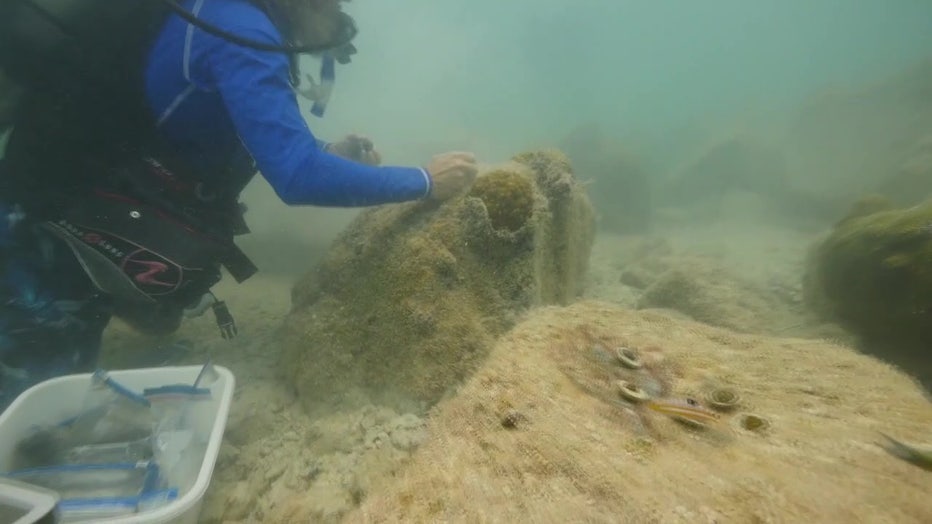Mote Marine receives NOAA grant to help restore 200,000 corals in Florida Keys
SARASOTA, Fla. - Signs of hope come in the form of new life among the coral reefs down in the Florida Keys.
"Restoration is an uphill battle because a lot of the stressors that caused restoration to be necessary are still there, but that’s one of the reasons why Mote is so focused on building resilience in the community," said Dr. Jason Spadaro.
Dr. Spadaro is the Coral Reef Restoration Research Program Manager for Mote Marine Laboratory in Sarasota. He said the portion of living coral on Florida’s coral reef is currently between 1-5%, down from more than 30% from 40 years ago.
Mote Marine has restored more than 200,000 corals, and they hope to double that number with a nearly 7 million dollar grant from NOAA.
READ: Mote Marine Laboratory records earliest sea turtle nesting in program history
"We are actively focused on finding corals that are heat tolerant, are disease resilient to the effects of ocean acidification and then incorporating those genetic individuals into our restored populations and into our production pipelines so the corals we are putting out to have the highest chance," said Dr.Spadaro.

A diver checking the health of a coral reef
The grant will help them focus on ten reef sites along Florida’s Coral Reef, just offshore of the Florida Keys Archipelago.
They’ll also produce and introduce 34,000 Caribbean King Crab to the areas, which helps reefs by eating algae.
"It eats a lot more algae than our parrot fishes that naturally occur in the area and more than many of the urchins that we are using as complementary species in restoration," explained Dr.Spadaro.
MORE: US lawsuit seeks to protect endangered coral reef species
The grant will help scientists focus on the entire health of the coral system.
"This new NOAA grant is really allowing Mote to take leadership in a transformational innovation that is looking at a holistic approach for coral reef community restoration. No longer just focusing on the coral species. We have that down and the genetic resiliency of all these different coral species, now we are focusing on continuing and expanding the coral restoration but also adding in other essential community members for a good healthy coral ecosystem," said Dr. Michael Crosby, the President and CEO of Mote Marine.
Mote Marine has set a goal for the next decade to outplant more than a million corals and to increase the living coral of the sites to cover 30%.
"Our work is far from done," Dr. Crosby said, "but this new grant is a major, major burst of energy and financial support that is allowing us to have a huge difference in just a four-year period."

